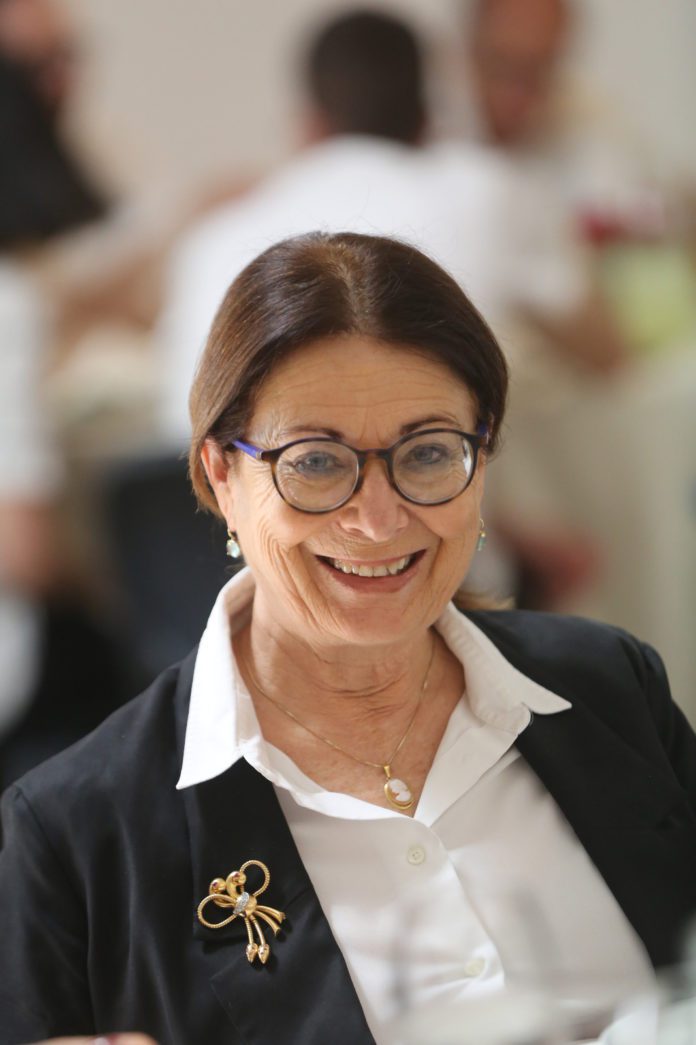Justice Esther Hayut Sworn in as Chief Justice
Esther Hayut, a daughter of Holocaust survivors who grew up in a working class neighborhood in Herzliya, became Israel’s 12th chief justice Thursday, replacing outgoing Supreme Court President Miriam Naor in a ceremony attended by President Reuven (Ruby) Rivlin, Prime Minister Binyamin Netanyahu, and Justice Minister Ayelet Shaked as well of dozens of other dignitaries at the president’s official residence in Jerusalem.
Hayut quoted the weekly Torah portion, which describes God’s election of Abraham as the founding father of the Jewish people, as well as another section of the book of Genesis that says Abraham was chosen because of his dedication to justice. She also quoted the Biblical book of Proverbs, saying the maintenance of an independent, fair justice system serves as an insurance policy for the Jewish people’s ongoing presence in the Land of Israel.
“Israel’s founding fathers – all of them, from across the political spectrum – understood the importance of the judiciary as the basis for our independence,” Hayut said.
She added that principles spelled out in the Declaration of Independence – including democracy and respect for human rights, and individual rights without regard to religious, race or gender.
Rivlin offered praise for the new and outgoing presidents, calling both women “dedicated public servants” who are among the brightest stars the State of Israel has ever produced.
Rivlin also cited ongoing attacks on the court’s integrity, and noted that despite the attacks Naor successfully remained faithful to her guiding principles of uncompromising honesty and professionalism.
“Through it all, you’ve remained… how can I say it? You’ve remained yourself. Your rulings have focused only on the strength of the arguments being presented, not on the identities of the individuals presenting them,” Rivlin said.
The president also called on the High Court to work to achieve a proper balance between all branches of government.
Prime Minister Binyamin Netanyahu expanded on Rivlin’s final point, saying laws must change because life situations change and adding that the natural and healthy state of relations between the judiciary, legislature and executive is one of tension. He cited examples of tensions between the executive and the courts in other Western countries, including Great Britain, France, Germany and the United States.
“Respectful disagreements won’t destroy democracy. They are the essence of democracy. That’s why I wave the flag of dialogue,” Netanyahu said.






